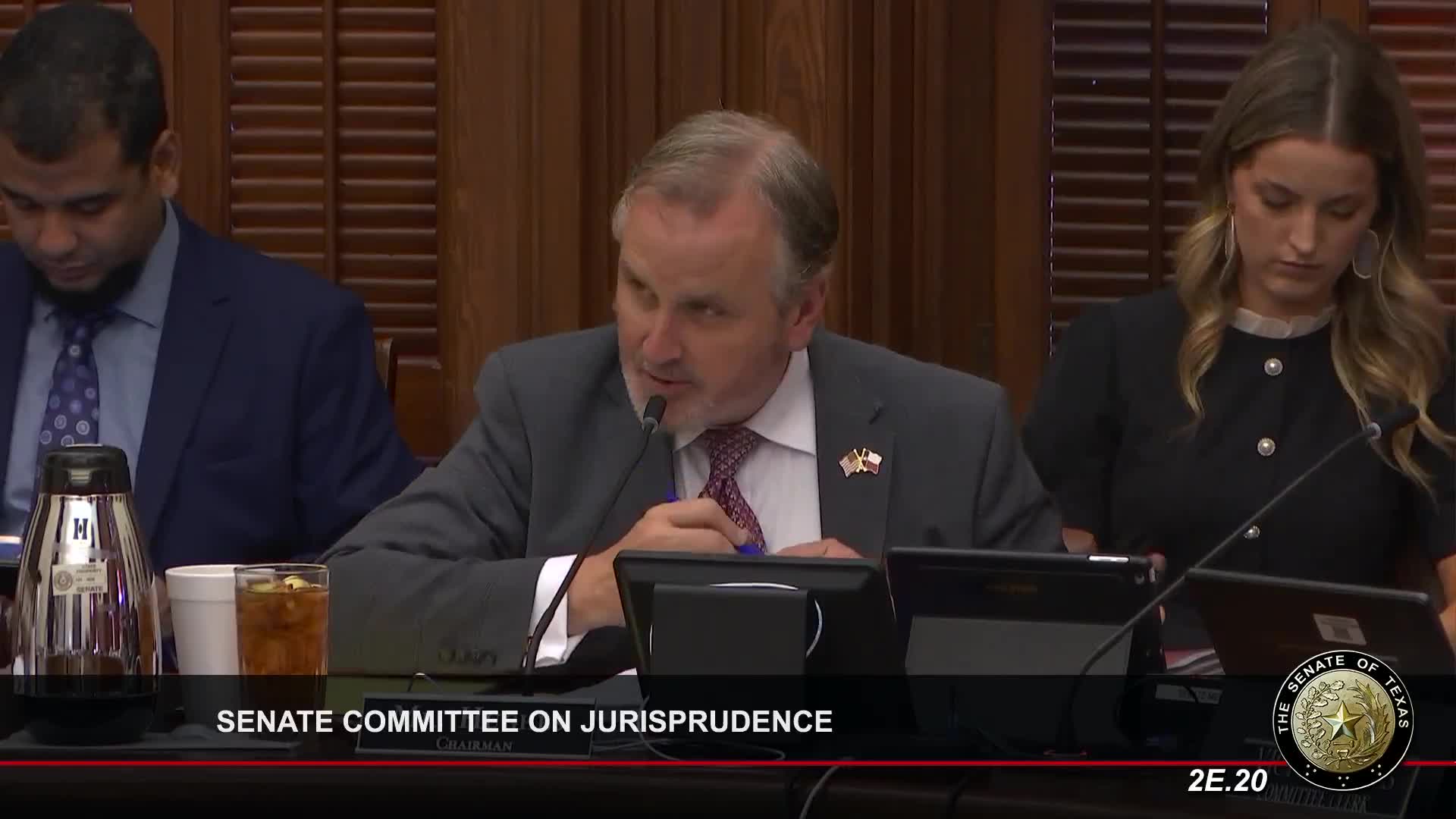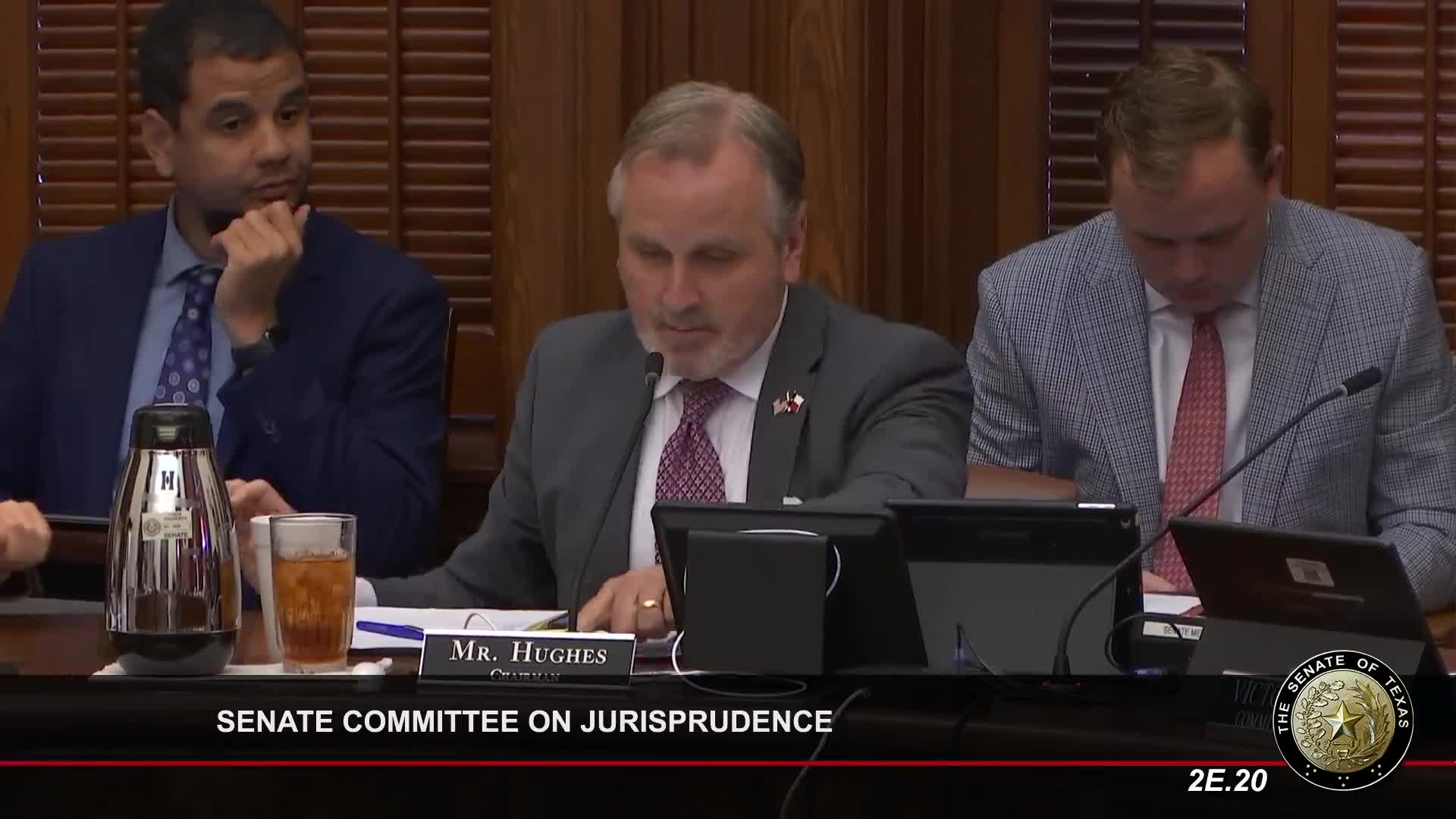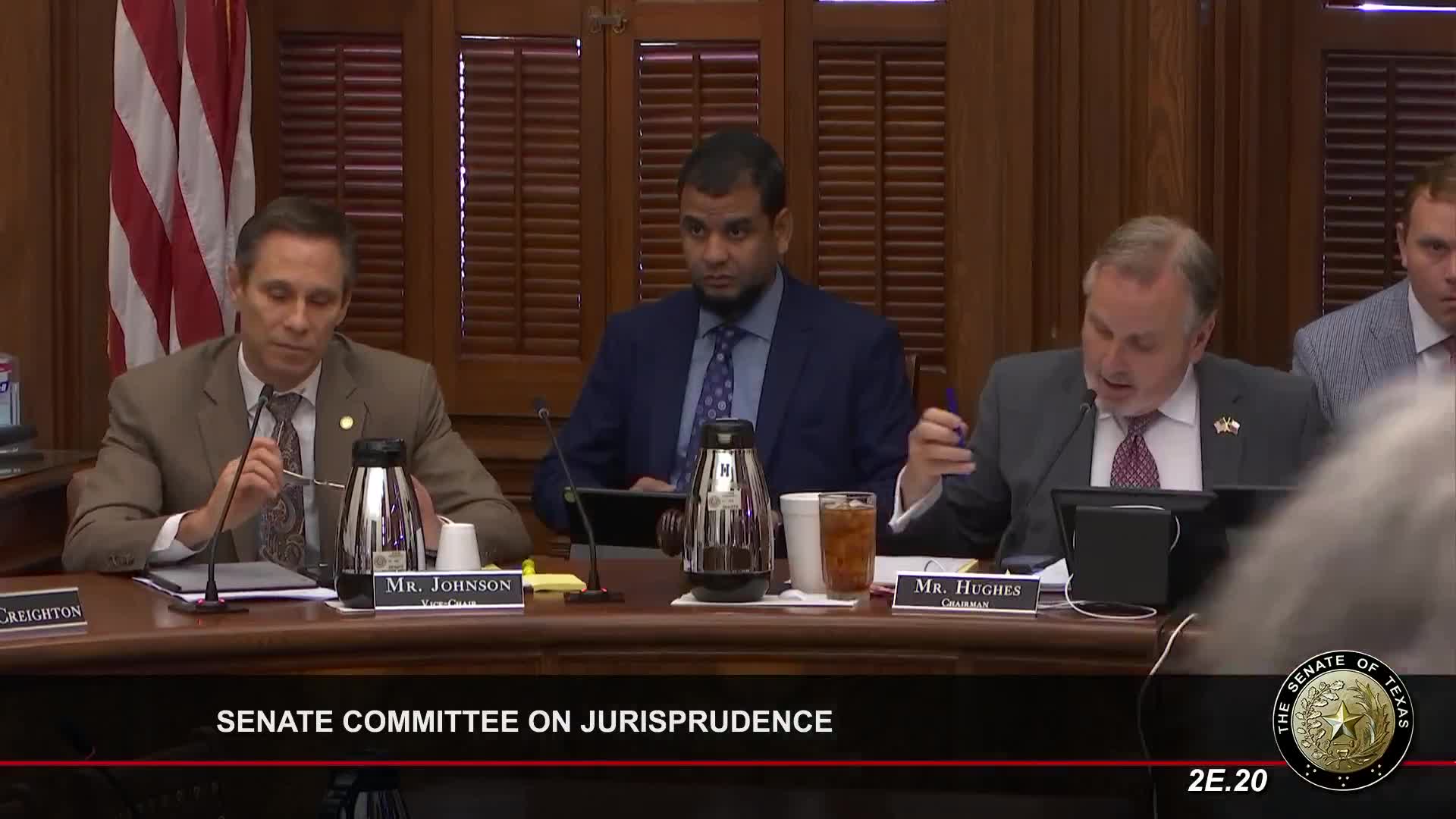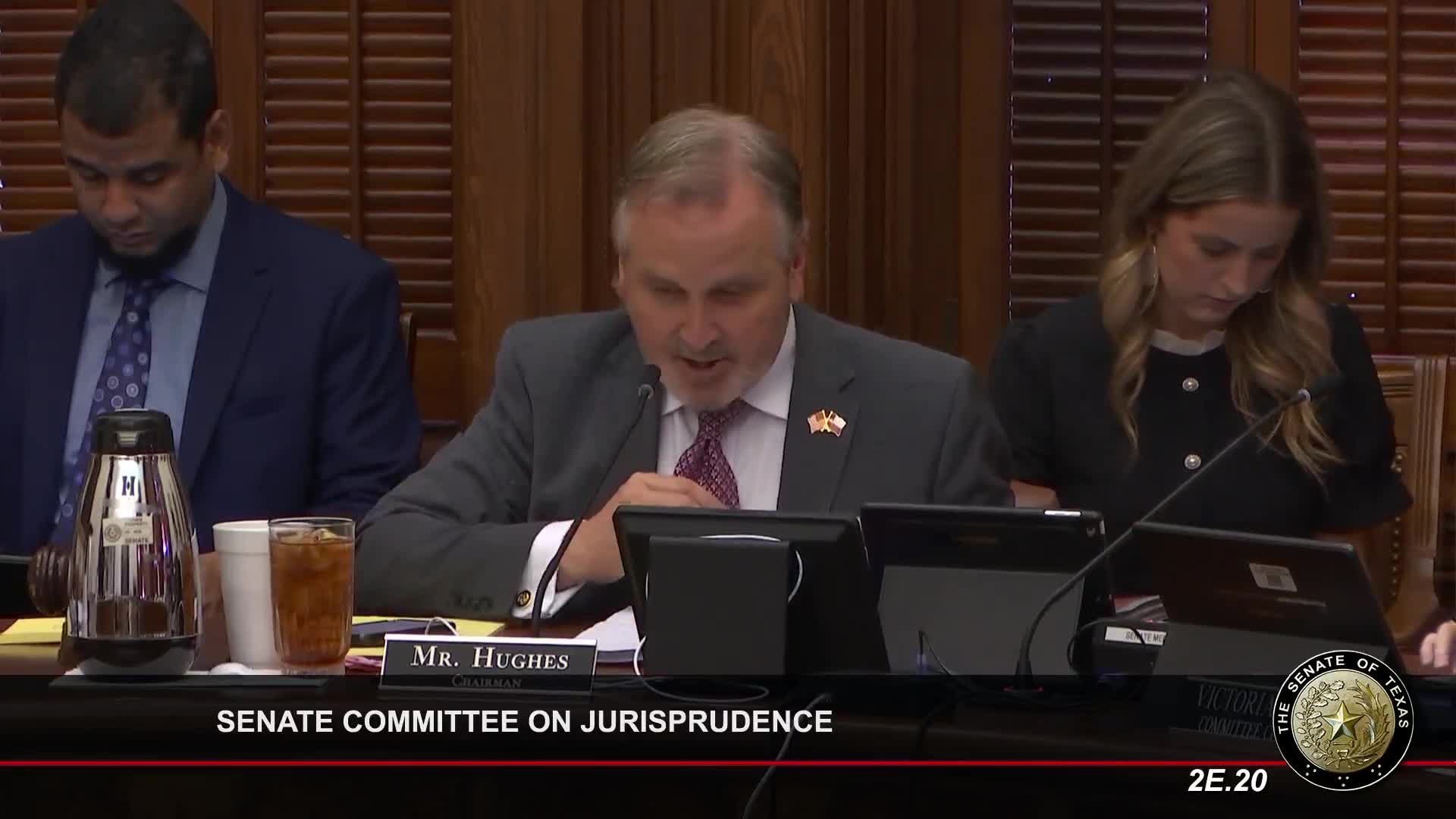Article not found
This article is no longer available. But don't worry—we've gathered other articles that discuss the same topic.

Bill would require training and redaction for child custody evaluators after parent testimony

Committee reviews bill to refine Texas business courts, add judges and clarify jurisdiction

Lawmakers consider rules to address court reporter shortage and digital-recording standards

